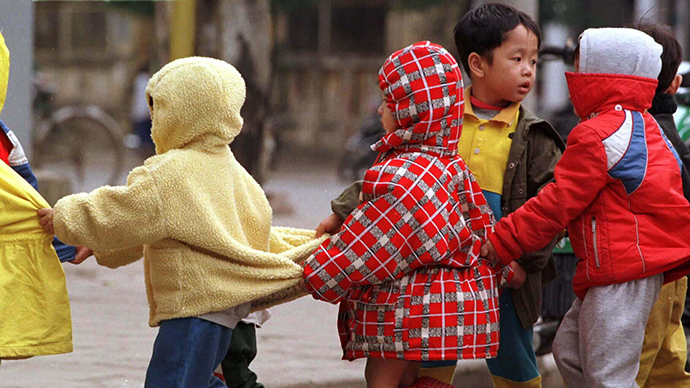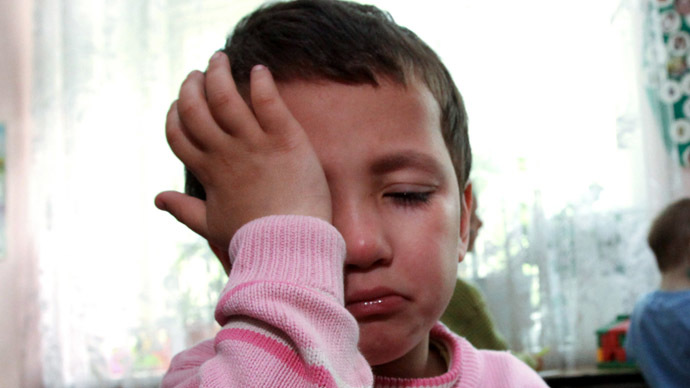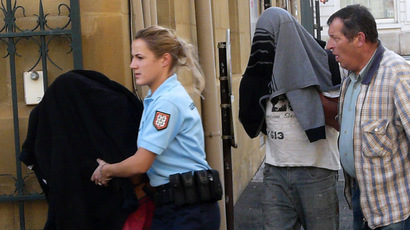Pleasure at other’s misfortunes starts as early as 2 yrs old, study finds

Schadenfreude – a feeling of pleasure about another person’s bad luck – develops in people deep in their childhood, researchers have found. It has actually been registered in toddler as young as two years old.
“The study strengthened the perception that schadenfreude is an evolutionary mechanism that develops within us as we cope with situations of inequality,” the head of the study, Professor Simone G. Shamay-Tsoory of the University of Haifa, said in apress release.
Schadenfreude stems from jealousy, hate, and competitiveness, the study concludes. It appears in competitive situations at an early age, for instance, when two siblings fight for their parents’ attention. Later on, it turns into a feeling of joy and pleasure when one sees another person suffering.
READ MORE: Anti-Barbie goes on sale – complete with acne, cellulite and stretch marks
The research was conducted by scientists who set up 35 groups consisting of a mother, her child, and the child’s identically-aged friend. Two situations were played out in the groups.
Firstly, the mother encouraged the kids to play together, and after ignoring the children for two minutes, she started to read a book aloud to herself for two minutes. Then, the mother would “accidentally” spill water onto the book she was reading.
In the second situation, the mother sat her kid’s friend on her lap and read aloud to him or her. After two minutes, she repeated the action of spilling water.

In the latter case, the mother’s child demonstrated signs of happiness by jumping up and down, clapping hands and rolling on the floor. This demonstration of schadenfreude didn’t happen in the first situation.
The researchers conclude that in this “unequal” situation, the child expressed joy because the other child was unable to carry on listening to the story. Also, the children expressed their jealousy by attempting to get between their mother and the book, or playing with their mother’s hair. The emotion of jealousy was stronger than schadenfreude, the study found.
READ MORE: Deaf baby is first to register sign-language name on birth certificate
“Social comparisons, in which we compare what we have to what others have, as well as emotions of justice, develop at a very early age and constitute positive evolutionary mechanisms to cope with inequitable situations,” Professor Shamay-Tsoory said.
“Because social-comparison reactions are linked to character traits like self-esteem and altruism, it’s possible that people who think less of themselves are more likely to suffer from feelings of schadenfreude,” he added.
Previously, some psychologists had concluded that the emotion starts in children at the age of seven, as they reach the age of reason and become more emotionally developed. However, in July, scientists from the University of Tuebingen Medical School in Germany also found evidence that "children as early as 24 months show signs of schadenfreude following the termination of an unequal situation," according to the article's summary.














